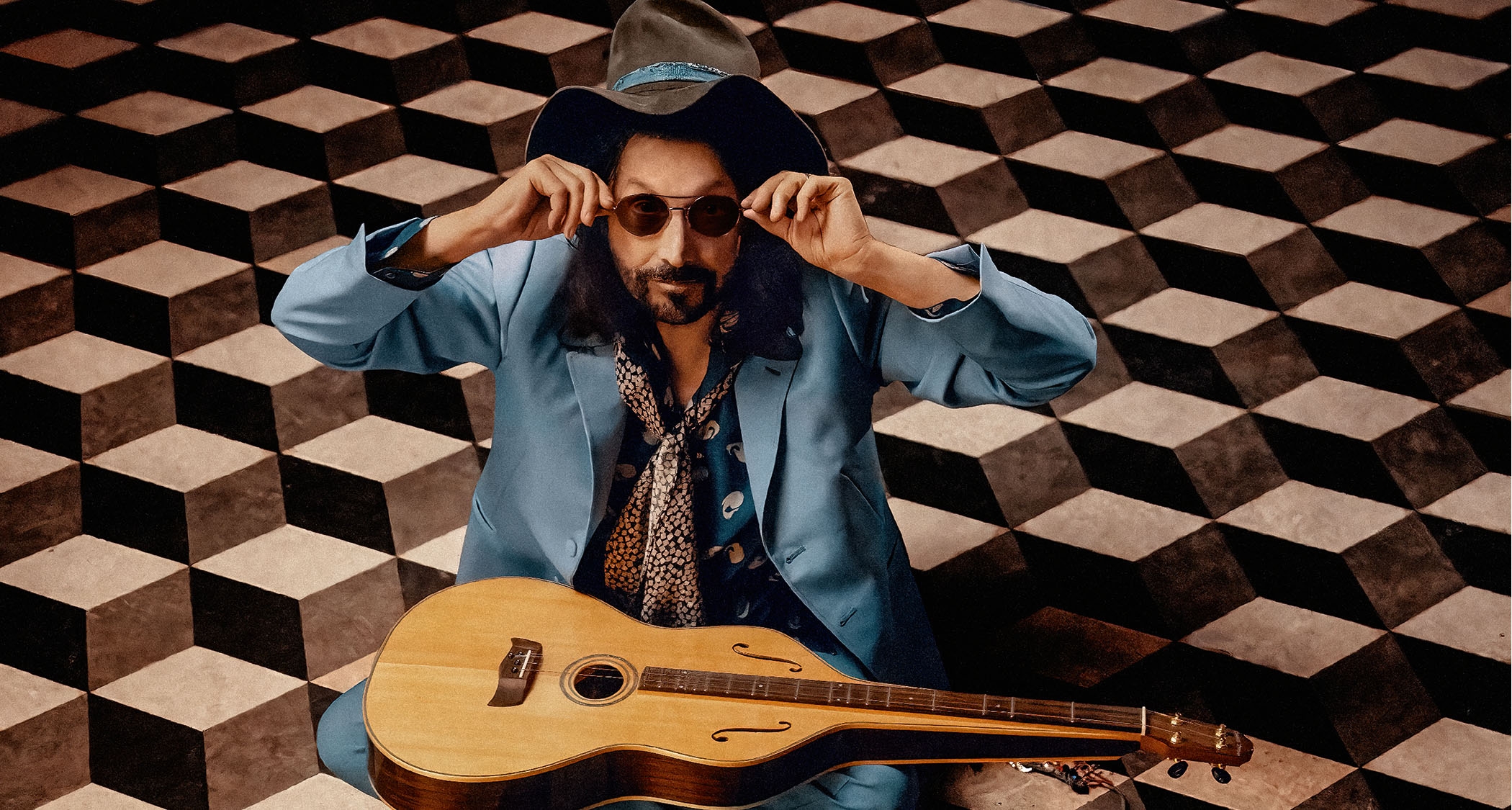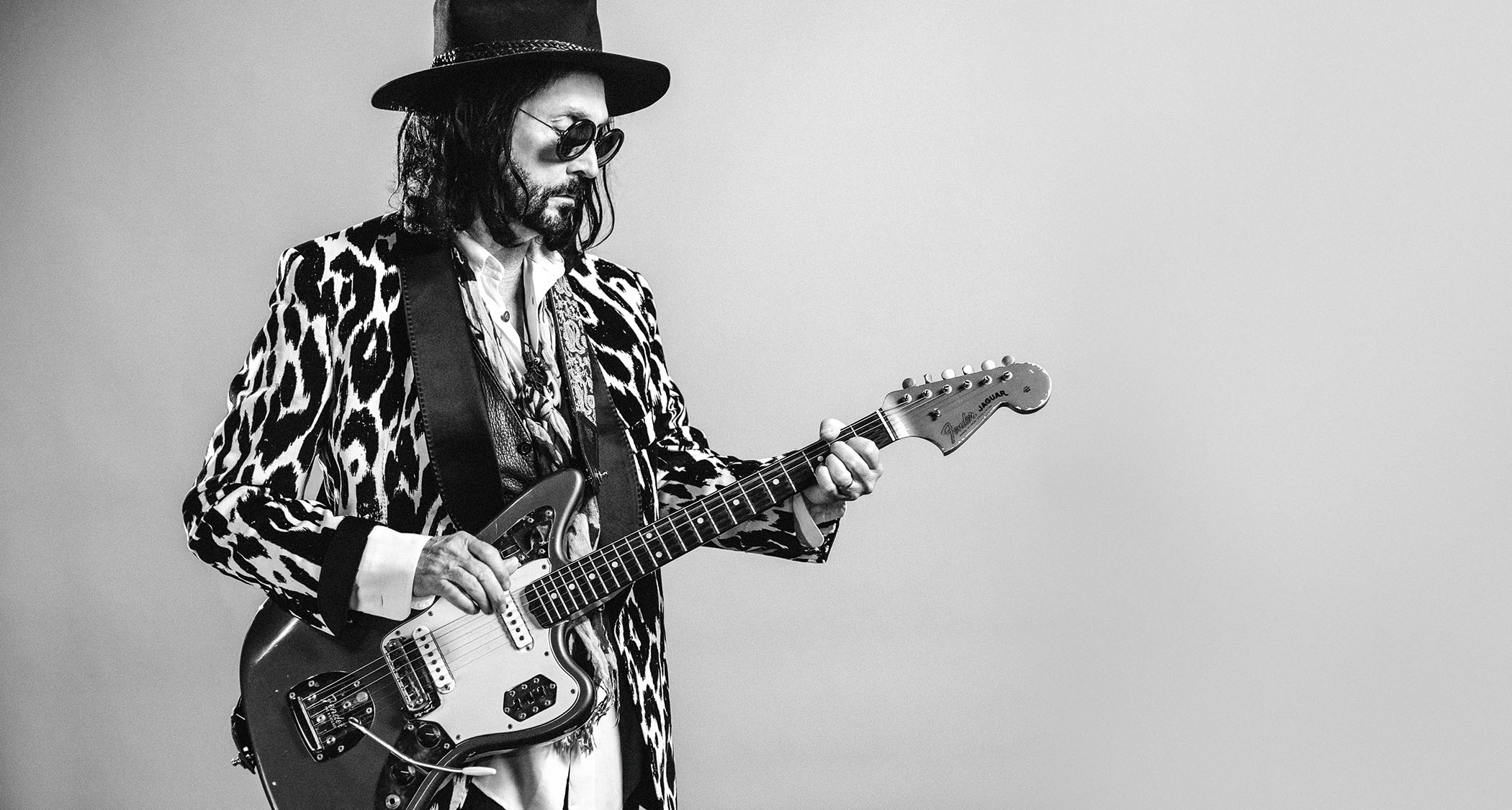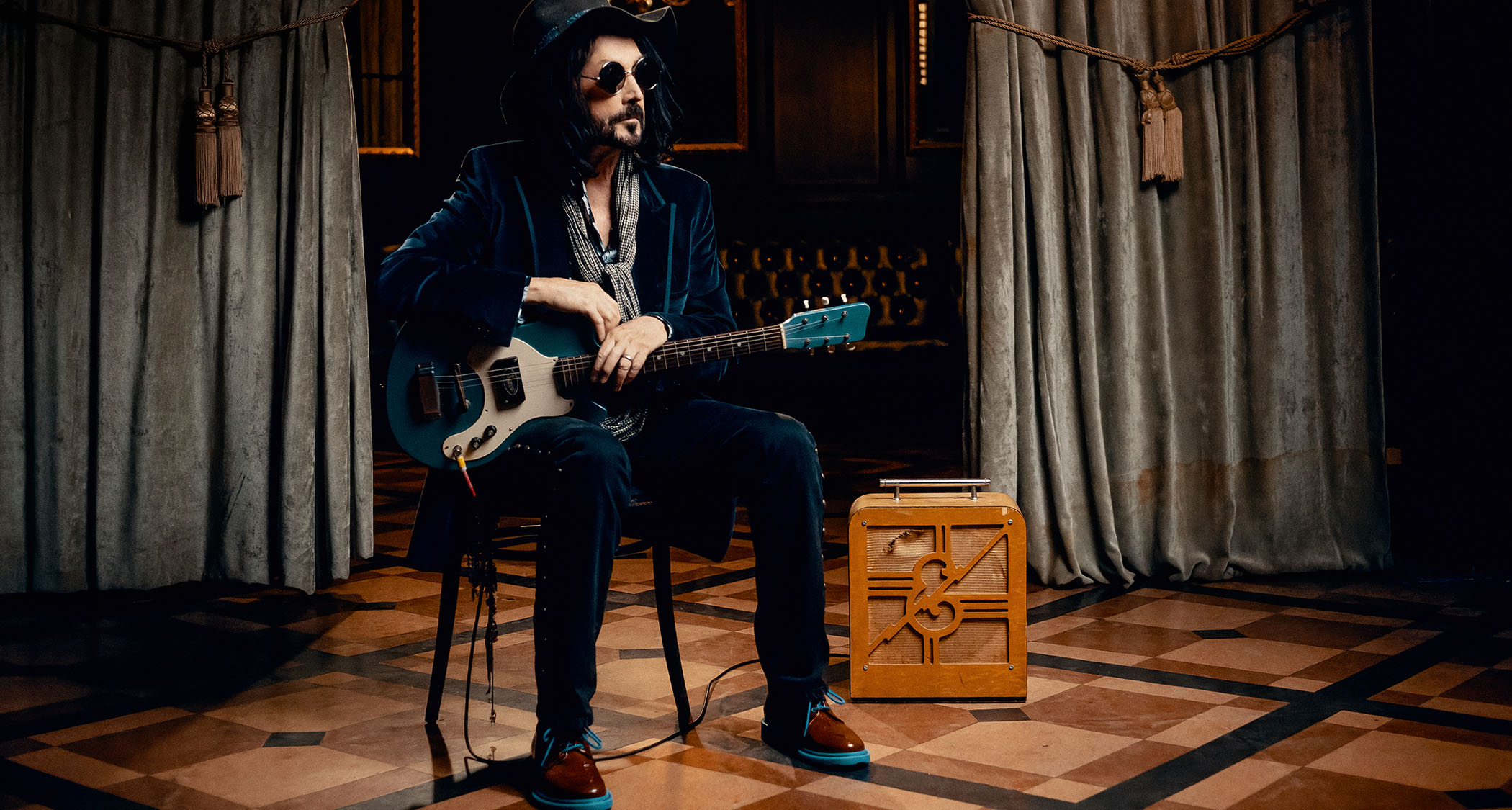“I use a lot of chords with open strings. The guys in the Heartbreakers used to laugh at me, saying, ‘You’re doing the bagpipes again!’” Mike Campbell on his unorthodox guitar style – and how Tom Petty saved his definitive Breakdown lick
With Vagabonds, Virgins & Misfits out now, Campbell reflects on a life in music, from first guitars to success with the Heartbreakers and the Dirty Knobs, and lessons learned along the way

Mike Campbell first tasted fame in the late ’70s as the lead guitarist in Tom Petty’s backing band The Heartbreakers.
He has worked with Stevie Nicks, Johnny Cash and the Eagles’ Don Henley, co-writing the latter’s ’80s classic The Boys Of Summer. And after touring with Fleetwood Mac in 2018-19, he has made three albums with his cheekily-named band The Dirty Knobs.
You’ve played a lot of guitars over the years. What was your first?
“I remember it well. It was an acoustic guitar, though I don’t have it now. It was a Harmony acoustic with an F-hole that my mom got me for 15 bucks. It was unplayable, but I didn’t know that. I learned to play on that thing, even though you couldn’t tune it! You could hardly put the strings down, and my fingers would bleed trying to play the damn thing!”
What was your first electric?
“When I was young, I went to a friend’s house, and he had a [Gibson] SG. I picked up that guitar and said, ‘Oh, my God, it’s so easy to play!’ That was the first electric guitar I played. My dad was stationed in Okinawa, Japan, and he sent me a Goya Electric, a real cheap version of a Strat, and I learned a lot from that.”
![Mike Campbell & The Dirty Knobs - Hell Or High Water (feat. Lucinda Williams) [Official Music Video] - YouTube](https://img.youtube.com/vi/5a4B9OnnlLQ/maxresdefault.jpg)
Which guitars in your collection mean the most to you?
Get The Pick Newsletter
All the latest guitar news, interviews, lessons, reviews, deals and more, direct to your inbox!
“Lately, I’ve brought out my original [Fender] Broadcaster from the first Heartbreakers album, which I used on American Girl and Breakdown. It’s been exciting to hear that again because it sounds great. Other than that, there’s been my ’59 Les Paul and a Rickenbacker here and there.”
I haven’t heard any guitarists more inspiring to me than George Harrison, Jimmy Page, classic Jimi Hendrix or Chuck Berry
Which guitarist is your biggest influence?
“I tend to listen to guys I grew up on, and I go back quite a bit. I’ve been around a long time, and I’m still drawn to the ’60s. I hear new music, but I haven’t heard any guitarists more inspiring to me than George Harrison, Jimmy Page, classic Jimi Hendrix or Chuck Berry. Nobody new has really thrilled me to the point where I want to figure out what they’re doing per se.
“To my ears, the ’60s is when all the cool stuff happened. Those are the places I go now. I don’t really keep up. I’ve tried, but most of the new music just leaves me cold. If I want to be inspired, I listen to the stuff that originally inspired me.”

In terms of technique, what’s the last new trick that you learned?
“Not to overplay. I’ve learned most of the tricks that I’m gonna learn. I just try to refine all the nuances, play in pitch, get a good tone, not play too many notes, and help the song.”
What was the last piece of gear you were excited about?
“Lately, I’ve been using an Ampeg Rocket amp, which I used on Mary Jane’s Last Dance and some of the earlier records. I found it in the closet, pulled it out, and loved its sound.”
When I pick up the guitar, I don’t pick it up to practise. I pick it up because I’m inspired to play or have an idea for a song, and I’m gonna chase the song
How much did you practise in the early days, and how much do you still practise now?
“That’s a good question. I don’t practise per se. When I was learning, I practised a lot to learn the notes, scales, and how to bend notes. I learned that pretty well, but now, when I pick up the guitar, I don’t pick it up to practise. I pick it up because I’m inspired to play or have an idea for a song, and I’m gonna chase the song. So, when I pick up the guitar, I’m usually off and running.”
Is playing fast overrated?
“I’m not a flashy player. I can do it real fast if I want to, but that doesn’t fulfil my musical mojo. I like the song, you know? I’ve always emulated George Harrison and Keith Richards and tried to come up with guitar parts, and it sounds like that. I’m very conscious of tone, touch, and vibrato that fits the songs. And I try to come up with great melodies.”
It’s like being a painter – I don’t try to do it too hard. I don’t think anybody wants to hear me struggling to do something
As a player, do you have any bad habits?
“It’s like being a painter – I don’t try to do it too hard. I don’t think anybody wants to hear me struggling to do something. I stay within my parameters of the stuff I can control and play well. I always focus on my vibrato, and it often needs to be in the rhythm of the song.
“If you listen to old songs by the Heartbreakers, like Breakdown, there’s a slow vibrato, and it’s bluesy and in pitch. Those are my main focuses. I want the guitar to sound like a voice, be in tune, and not bend the strings past the note. I’m not here to show off my technical ability. I always want to help the song, rather than show off.”
![Mike Campbell & The Dirty Knobs - Dare To Dream (feat. Graham Nash) [Official Music Video] - YouTube](https://img.youtube.com/vi/FhGeeldeedk/maxresdefault.jpg)
Is there anything that you can’t play that you’d like to?
“The cello! I wish I could play the cello or violin. Several years ago, I tried to teach myself, but it’s hard to play an instrument without frets on it. If you take those frets away, boy, I’m in real trouble! Put a bow in my hand, and it doesn’t work. I wish I could play those because I love them, but I just gave up. It’s beyond me.”
What technique did you have to work hardest to master?
“Well, I can tell you one little thing I have incorporated into my style that comes out quite a bit – using chords with open strings under. The guys in the Heartbreakers used to laugh at me, saying, ‘Yeah, you’re doing the bagpipes again!’ It’s like a drone.
“Underneath the suspension are the open strings as the chords change up the neck, and some open strings ring against it. It kind of gives me a sound like The Byrds, and it’s something I often fall into because it’s natural for me.”

What is one song or performance that you’re most proud of?
“On my latest record, [Vagabonds, Virgins & Misfits], the first song that comes to mind is Hands Are Tied. It’s an old song that I dug up, and I like it because it’s unique to me and has different time signatures. And now, I’ll get technical! It’s got a movement and a time signature that’s a challenge to play, but the words are spiritual and personal to me.
Tom wrote Breakdown on the piano, and I went in at the end of the night, noodled around for six minutes through the whole song, just playing the blues, just a mindless stream of consciousness
“I didn’t notice this till after the fact, but there’s a guitar intro there that’s very reminiscent of Breakdown. It’s a similar type of lick in a similar tone and harkens back to that a bit. So, of the older songs, I’d probably choose Breakdown from the Heartbreakers’ first album. When we first cut that track it was a six-minute jam.
“Tom wrote it on the piano, and I went in at the end of the night, noodled around for six minutes through the whole song, just playing the blues, just a mindless stream of consciousness. And at the end of the song, I got bored, went home, and said nothing about it. And then Tom called and said, ‘You’ve got to come back to the studio. There’s something at the end of the song that you played that would be perfect for the beginning.’
“I didn’t know what it was, but I went back, and they played it for me. I ended up putting the line at the top of the song, and it kind of became very definitive. That’s a good example of my vibrato, tone, and finding my essence.”
What do you play when you’re just relaxing and playing for the fun of it?
“Oh, I do that a lot. I tend to fall into blues lines by, like, Mike Bloomfield, B.B. King or Chuck Berry. If I get stuck, I always go into Chuck Berry mode, leading me in the right direction.”
And after all these years in the game, can you remember a time when you felt like you’d failed as a player, or felt embarrassed by a performance?
“That’s a good question, but I don’t think I can answer it clearly! I tend to work stream-of-consciousness with guitar stuff, especially solos. I tend to run the tape, record it, then listen back, and go, ‘Oh, well, that little piece there… that should be the essence of this. Let’s get rid of that other crap!’ And then I’ll do it again with that in mind.
“I will just play it again and try it in the right vein. You always learn something from every song, and you surprise yourself. If you’re lucky, you’ll surprise yourself a lot and think, ‘What was that? Where did that come from?’. The important thing is to be open, pay attention, and don’t let anything get past you that was really good.”
- Vagabonds, Virgins & Misfits is out now via BMG.
Andrew Daly is an iced-coffee-addicted, oddball Telecaster-playing, alfredo pasta-loving journalist from Long Island, NY, who, in addition to being a contributing writer for Guitar World, scribes for Bass Player, Guitar Player, Guitarist, and MusicRadar. Andrew has interviewed favorites like Ace Frehley, Johnny Marr, Vito Bratta, Bruce Kulick, Joe Perry, Brad Whitford, Tom Morello, Rich Robinson, and Paul Stanley, while his all-time favorite (rhythm player), Keith Richards, continues to elude him.





![[from left] George Harrison with his Gretsch Country Gentleman, Norman Harris of Norman's Rare Guitars holds a gold-top Les Paul, John Fogerty with his legendary 1969 Rickenbacker](https://cdn.mos.cms.futurecdn.net/TuH3nuhn9etqjdn5sy4ntW.jpg)







